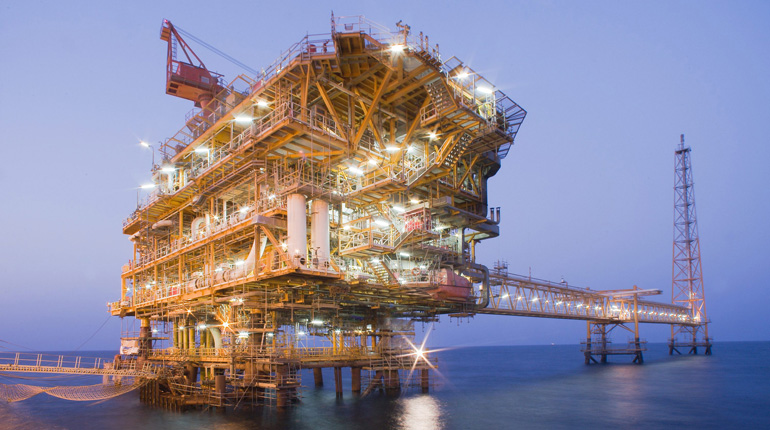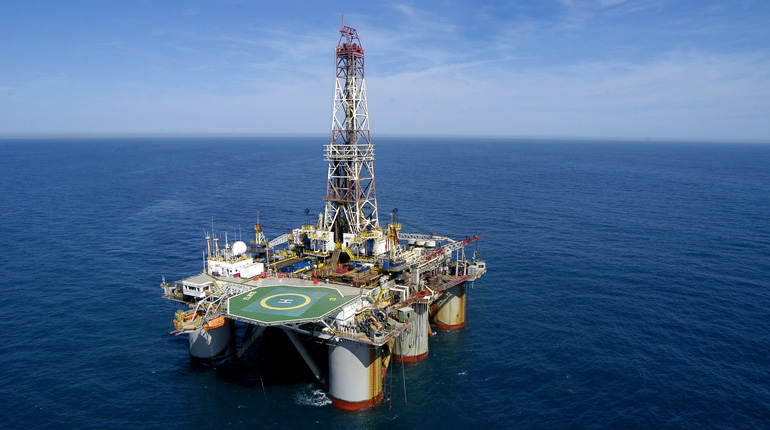 A rig in Iran’s South Pars field. The country has approved a new oil and gas contract for IOCs. (Statoil)
A rig in Iran’s South Pars field. The country has approved a new oil and gas contract for IOCs. (Statoil)
Iran’s cabinet approved the latest draft of the country’s oil and gas framework on Wednesday, paving the way for contracts and investment in the Iranian oil and gas sector.
The Iran Petroleum Contract (IPC) replaces the country’s old buy-back model, which was heavily criticised by IOCs for failing to offer sufficient upside to justify investment. The original draft was unveiled to oil companies in December 2015 and has since been revised in response to criticism from figures inside Iran, including the country’s Supreme Leader Ali Khamenei.
Energy Pioneers, an Iranian oil and gas consultancy with offices in London and Tehran, said the cabinet approval represented an important milestone for the sector, even though several key points remain unresolved in the text.
"A major step has been taken forward to both maximise the country’s massive potential and also address concerns of participating oil companies in the current dark days of international oil markets," the company said in a note on Thursday.
Outstanding issues may only be resolved through contract negotiations with IOCs, which will set a precedent for future contracts to follow.
According to Iranian news agency Tasnim, the latest version of the IPC includes 150 changes to the original draft. Many of the changes appear to be minor.
"The main change seems to be that the joint operating company concept has been dropped," Richard Devine, a partner at law firm Clyde & Co, told Interfax Natural Gas Daily.
"In the prior draft of the regulation, there was [a requirement for the] contractor and National Iranian Oil Co. [NIOC] to form a joint operating company. Now it appears the contractor can remain the operator of the field throughout the term of the IPC. This is the more conventional approach and something that I think the IOCs will welcome," Devine said.
Other provisions have been added – Article 1 of the latest draft states that the resolution is to be interpreted according to Iranian law.
Payment plan
A key aspect of the approved draft is the remuneration structure. According to Article 6, IOC payments will be calculated based on the repayment of capital expenditure as well as output of up to 50% of additional crude production and up to 75% for gas production or revenues. The latest text also explicitly states that no government guarantees will be available.
However, several important points are yet to be clarified. The IPC does not say where disputes will be heard and what resolution mechanism should be employed to settle them. The absence of such a mechanism in the document suggests its structure is negotiable.
This aspect will be more important to some than others. "State-owned national oil companies might have different concerns than IOCs. For example, they might be less concerned with the form of dispute resolution in the contract on the basis that they may have other channels to try and resolve other disputes," said Devine. "IOCs on the other hand will probably be very sensitive [to this]."
Iran is also yet to set out how joint venture partnerships with local companies should operate. "The regulation provides that the purpose of the joint venture is to facilitate the transfer of technology, but these companies are not E&P companies as such – some are contractors, some oil services companies," said Devine.
Iran has not said whether such partners would be investors or carried shareholders. This is an important point for IOCs in assessing risks associated with investments. If their partner does not meet their payment obligations, the sanctions that could then be imposed are unclear.
Outstanding issues may well be resolved over the next few months. "We will try to make the new model operational as a contract within six months," said NIOC Managing Director Ali Kardor this week. The final IPC is expected to take two forms – one covering shared fields and the other covering high-risk fields. The details of the new framework will need to be ratified by the oil ministry.
Once the document is finalised, Iran will be in a position to tender oil and gas contracts. However, the country may instead start negotiations with IOCs and use them as a precedent to fine-tune the contract. "For a long time they’ve talked about bid rounds, but we also have heard that there are some bilateral negotiations going on," said Devine.
"While there seem[s] to be a relatively long way to see the exact terms of IPCs, it is likely that the drafting and finalisation of such terms will take place through bilateral negotiations with the very first bidding parties," according to Energy Pioneers.
This may be the most practical solution and the fastest way to sign deals with IOCs, but it could draw public criticism because of a perceived lack of transparency and accountability. Oil and gas contracts are heavily scrutinised in Iran because the public is critical of historical hydrocarbon deals that failed to secure enough in return for Iran’s natural resources.







Talk to us
Natural Gas Daily welcomes your comments. Email us at [email protected].